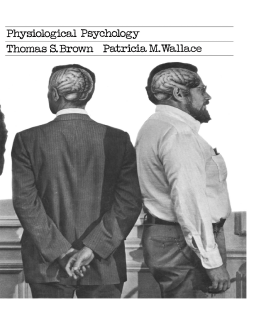
Additional Information
Book Details
Abstract
Physiological Psychology explores the trends in physiological psychology, a rapidly growing and changing field that deals with the relationship between physiology and behavior. It considers the physiological correlates of emotions and how emotions are related to specific kinds of brain activity, the plasticity of the nervous system as it relates to learning and memory, and higher processes, such as thinking, decision making, reasoning, and language.
Organized into 16 chapters, the book begins with an overview of the nervous system and the neuron, emphasizing the sensory systems: vision, audition, the chemical senses (olfaction and taste), and the somatosensory and vestibular systems. Then, it discusses the physiological bases of some of the more ""primitive"" behaviors, such as hunger, thirst, reproduction, sleep, and emotion. In particular, it examines the motor system of the brain, the motivation for food and water, the biological bases of sexual behavior, the biological rhythms and sleep, and the role of genetics, nutrition, environment, and hormones in development. The last chapter deals with the cortex and its role in the higher processes.
This book is a valuable resource for psychologists, biologists, chemists, physicists, engineers, nutritionists, and many others interested in the relationship between biology and behavior.
